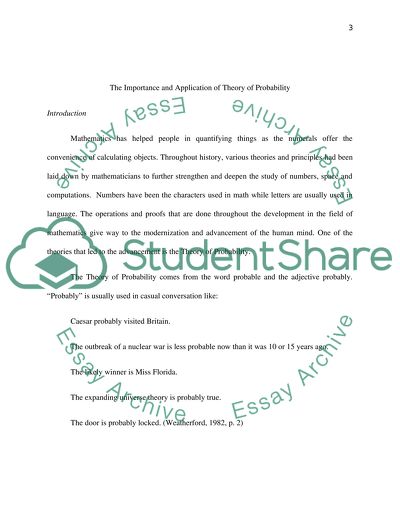Cite this document
(“Blaise Pascal and the Theory of Probability - Why it is important and Research Paper”, n.d.)
Blaise Pascal and the Theory of Probability - Why it is important and Research Paper. Retrieved from https://studentshare.org/mathematics/1439739-blaise-pascal-and-the-theory-of-probability-why-it
Blaise Pascal and the Theory of Probability - Why it is important and Research Paper. Retrieved from https://studentshare.org/mathematics/1439739-blaise-pascal-and-the-theory-of-probability-why-it
(Blaise Pascal and the Theory of Probability - Why It Is Important and Research Paper)
Blaise Pascal and the Theory of Probability - Why It Is Important and Research Paper. https://studentshare.org/mathematics/1439739-blaise-pascal-and-the-theory-of-probability-why-it.
Blaise Pascal and the Theory of Probability - Why It Is Important and Research Paper. https://studentshare.org/mathematics/1439739-blaise-pascal-and-the-theory-of-probability-why-it.
“Blaise Pascal and the Theory of Probability - Why It Is Important and Research Paper”, n.d. https://studentshare.org/mathematics/1439739-blaise-pascal-and-the-theory-of-probability-why-it.


